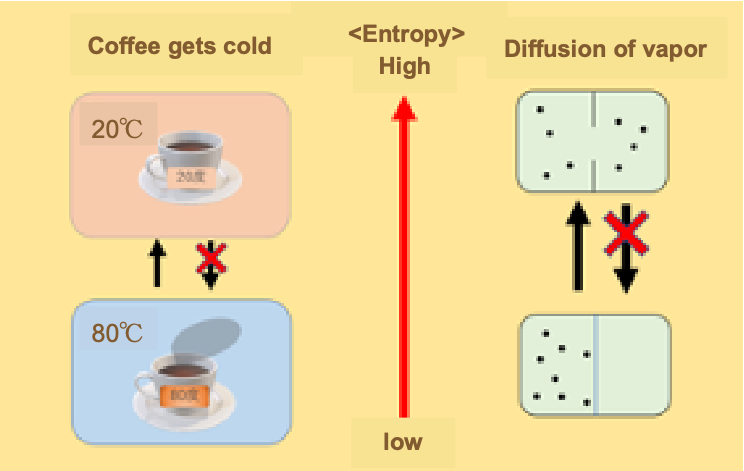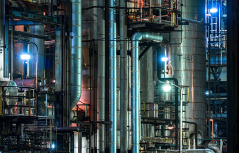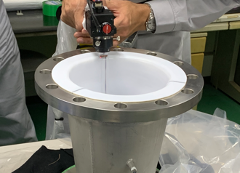Column1
Column 1:
Entropic Way of Viewing
Sales Director at Systems Engineering Inc.Toshihiro Takata
Each person has their own way into a scientific world.
Some people became caught up in mathematics/science in the school curriculum; others got influenced by their cram school teachers, family members, or relatives. As for me, I was not weak in science related subjects in my school days, but not particularly interested in the field of science. The reason such a person joined a company whose name includes “Science” and became engaged in technology-related jobs is the encounter with Jeremy Rifkin’ s work concerning entropy.
Owing greatly to him, Second Law of Thermodynamics attracted public attention as an economic term. It denotes the irreversibility in thermodynamic processes and is quite convenient to understand scientific phenomena and economic system as well. It seems to me that this should be the very way we understand and solve the problems in our society.
We live in a closed space of “Spaceship Earth” (borrowed from Mr. K.E. Boulding):
“What should we do” from now on?

To quote from Entropy: A New World View by Jeremy Rifkin:
“……the idea that human labor and machinery create only value, because they believe in the paradigm of permanent and unlimited material progress. But……every time human energy of mechanical energy or any other form of energy is expended to make something of value, it is done at the expense of creating even greater disorder and waste in the overall environment. We also know that even the things of value that we make eventually end up as waste or dissipated energy. Thus, there is no such thing as “material” progress in the sense of accumulating a “permanent” store of usable goods, for everything we make in the world eventually ends up as dust in the wind.“Both capitalist and socialist societies define productivity by the speed per production unit……but productivity can be understood more adequately using thermodynamic measures.
In other words, productivity should be calculated based on not speed but entropy generated per production unit.”
Productivity has been calculated by “amount of production (value) / amount of input”.
Let us change this basic concept into “input (resource, energy) / production (magnitude of targeted value)”.
Here, perspective of input is highlighted instead of traditional idea to maximize production with a given input. Evaluating input not only by physical value but by actual amount of energy consumption——this is how the entropic way of viewing goes.


When you drive a car to a certain destination, for example, how fast is the best? Even if we know the most energy-efficient speed, many of us try to go faster because we have reasons or benefits of arriving earlier. Even though the speedometer indicates the average fuel economy has been lowered a bit, joy/relaxation makes us feel satisfied and benefited when we have enough time to relax at an inn, we make it in time for meeting our acquaintances, we have spare time to take family photos, etc.
In a production process, at the same time, increase in a numerator (energy) caused by speed-up will result in a cost added to the price of produced goods. People willingly pay for the value (compensation), which leads to ever faster production. Thus, human beings are naturally apt to increase entropy.
The above-mentioned “master of entropy” says, “even the things of value that we make eventually end up as waste or dissipated energy.”
Human beings already increase entropy only by living our lives. Our natural instinct is also harmful and we should be blamed to be the criminals in this Spaceship Earth.
Although economic phenomena (what happens in the course of human living) devise theories, paying attention only to the generated phenomenon and overlooking its process would lead to mistakes in the entropic sense. True we have reduced plastic shopping bags, but how about entropy? Many cutting-edge incinerators have been built in response to the dioxin problem, decrease in plastic shopping bags has increased the usage of heavy oil——is it really the beat option not to burn plastic bags? I don’t intend to start political discussion, but maybe we should notice that we are aware of only a small portion of phenomena and intentionally-leaked fragmentary information.
Nonetheless, technological advancements gain our sincere faith and swagger around our daily lives.
According to the master of entropy,
“While more efficient recycling is going to be essential for the economic survival of the planet in the future, there is no way to achieve anywhere near 100 percent reprocessing. For example, recycling efficiency today averages around 30 percent for most used metals. Recycling requires the expenditure of additional energy in the collecting, transporting, and processing of used materials, which increases the overall entropy of the environment. Thus, things can only be recycled by the expenditure of new sources of available energy and at the expense of increasing the entropy of the overall environment. A point that needs to be emphasized over and over again is that here on earth material entropy is continually increasing and must ultimately reach a maximum. That’s because the earth is a closed system in relation to the universe; that is, it exchanges energy but not matter with its surrounding.”

Let us not focus on incidents, accidents, disasters, or phenomena that frequently happen in the course of our lives and economic activities but try to reframe them as a process.
Entropy always resides in the processes.


My job involves assisting inspection processes on many occasions.
Maintenance and repair of factory equipment/infrastructure is indispensable for stable and safe operations.
Many of the parts/structures that could be used after inspection are actually exchanged or disposed of in accordance with safety factor.
We need to take samplings to conduct such inspections as cutting, observing, putting into analytical instruments and so forth, and then, after evaluation, return the samplings to their original position. This requires both manpower and time, and in many cases, it is prioritized to reduce them and restart the normal operation as soon as possible. Reducing input of manpower and generating value of time——regular maintenance in most efficient method and reduction of input leads to corporate profits ……seemingly. However, getting rid of still usable materials with their useful life left and throwing in new one means generating another input. It also increases final form of entropy as waste substance. The same goes for social infrastructures. Every time accidents such as tunnel cave-in or bridge collapse occur, we struggle to exchange the whole equipment to a new one. However, are we properly evaluating their durable life and actual condition? The Congress promised to make Japanese highways toll free in 22th century, but since it is such a long-term future in which even present-day children do not live any more, I guess the toll would be a few times higher than today far from free.
It seems to be significantly effective to reduce input in “unglamorous” tasks of maintenance. Why don’t we re-examine its effectiveness.
As the master of entropy puts it, plants increase entropy the least. They breathe in carbon dioxide——a hot topic in global warming issue——and breathe out oxygen, and their inputs are water and solar flow that comes from outside of Spaceship Earth; the sun. I believe we should live our lives with affinity for plants in mind.
(*Mr. Jeremy Rifkin proposes ZERO marginal cost society in recent years.)
Trackbacks and Pingbacks on this post
No trackbacks.
- TrackBack URL
Comments on this post